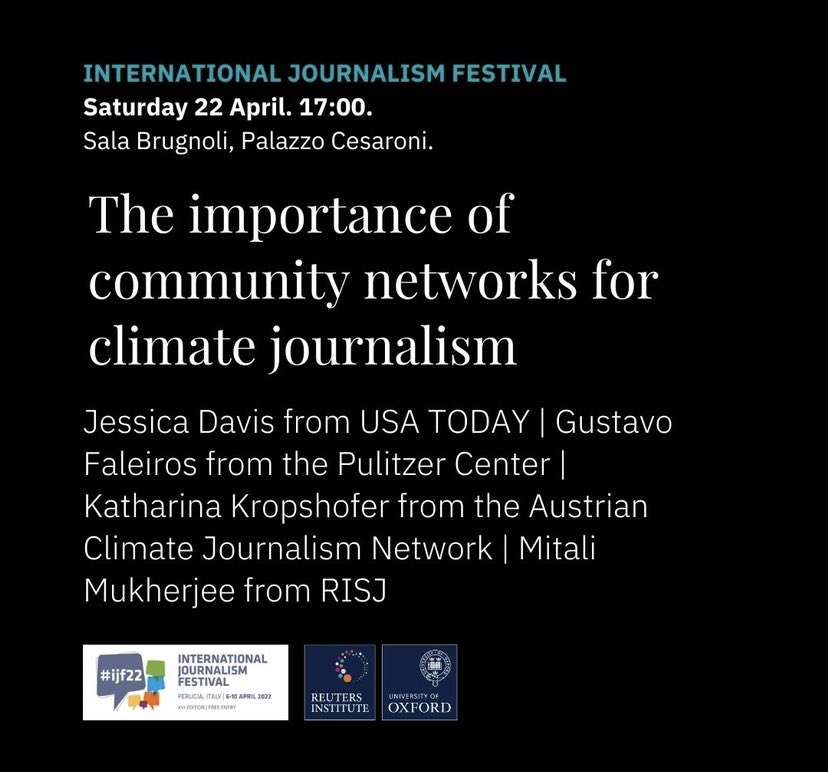Kicking off this panel on declining trust in media. Featuring our own @eduardosuarez @elodievialle
from @PENamerica, @brianstelter from @ShorensteinCtr, @lvzwestcott from @pressfreedom
📺 Watch journalismfestival.com/programme/2023… 📌Key points in thread
from @PENamerica, @brianstelter from @ShorensteinCtr, @lvzwestcott from @pressfreedom
📺 Watch journalismfestival.com/programme/2023… 📌Key points in thread

@eduardosuarez @elodievialle @PENamerica @brianstelter @ShorensteinCtr @lvzwestcott @pressfreedom "Sometimes the decline in trust in news is not because of journalism. We know for a fact that trust in news goes hand in hand with trust in institutions and trust in governments," says @eduardosuarez #ijf23
@eduardosuarez @elodievialle @PENamerica @brianstelter @ShorensteinCtr @lvzwestcott @pressfreedom "We have to acknowledge that bad journalism has a really bad impact, especially in disadvantaged communities," says @eduardosuarez, citing our latest Trust in News report #ijf23
@eduardosuarez @elodievialle @PENamerica @brianstelter @ShorensteinCtr @lvzwestcott @pressfreedom "We shouldn't assume that everyone knows what journalism is and what journalists do," says @eduardosuarez #ijf23
@eduardosuarez @elodievialle @PENamerica @brianstelter @ShorensteinCtr @lvzwestcott @pressfreedom "I would say that the decline in trust in media and the attacks on journalists are two sides of the same coin," says @elodievialle #ijf23
@eduardosuarez @elodievialle @PENamerica @brianstelter @ShorensteinCtr @lvzwestcott @pressfreedom "Women and marginalised communities are the most targeted, so we cannot speak about diversity in the newsroom without putting together the conditions for these people to do their work safely," says @elodievialle #ijf23
@eduardosuarez @elodievialle @PENamerica @brianstelter @ShorensteinCtr @lvzwestcott @pressfreedom "Let's be honest, hate speech, online abuse makes money," says @elodievialle #ijf23
"The cratering of the trust in the media is related to the fact that we're all members of the media now," says @brianstelter #ijf23
"We need to pre-bunk, we need to anticipate what misinformation and lies are going to be coming our way," says @brianstelter #ijf23
"We need to publicise the harassment we receive, pre-bunk misinformation and prosecute the people who harass us," says @brianstelter #ijf23
"Let's make sure our voices are louder than the misinformers and harassers," says @brianstelter #ijf23
"It's important to draw a difference between criticism of the media and dehumanisation," says @brianstelter #ijf23
"Most people still just want to know what's true, so the public is on our side," says @brianstelter #ijf23
"We've seen attacks against journalists, but we're also seeing a playbook emerging to fight these attacks," says @eduardosuarez #ijf23
"Democratic governments around the world are starting to see the value of funding independent journalism," says @eduardosuarez #ijf23
"We need to help folks know the difference between reporters and repeaters," says @brianstelter #ijf23
• • •
Missing some Tweet in this thread? You can try to
force a refresh

 Read on Twitter
Read on Twitter
















